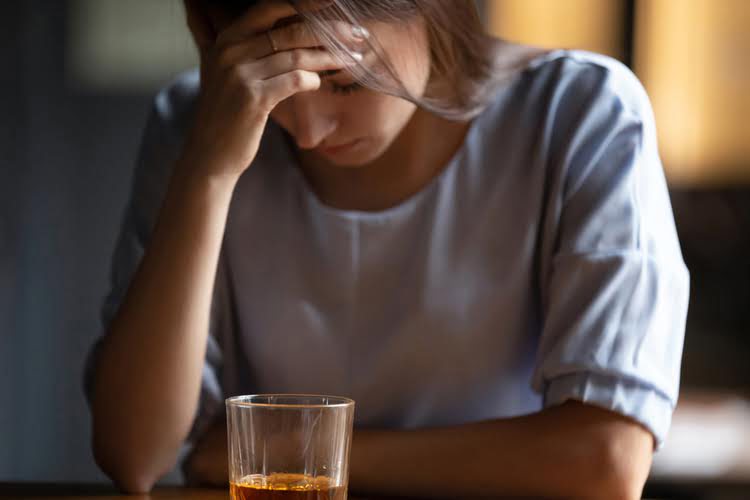Why Does Alcohol Make You Pee? » ScienceABC
While most drinks and high-liquid foods will provide water for the body to use and stay hydrated, some drinks may act as diuretics having the opposite effect. Dehydration may also impair blood sugar response in some, such as those with type 2 diabetes. Research from 2017 found that people with diabetes who had 3 days of low water intake had an impaired blood glucose response. A 2020 study notes that dehydration may increase glucagon, a hormone used to maintain glucose or sugar levels in the blood. Lower levels of hydration in the body decrease the volume of the cells, which may impact a person’s blood sugar. Experts believe that too much sugar may make dehydration and other symptoms worse.
Alcohol’s Role in Diuresis
Individuals with kidney problems should consult with their doctor before consuming non-alcoholic beer. While the low alcohol content is generally not a concern, the fluid and electrolyte content should be carefully considered based on individual kidney function. A compromised diluting ability has important implications for the management of patients with advanced liver disease.

How Many Beers To Get Drunk: Factors That Get You Buzzed
- It’s been observed that drinks with a higher alcohol content tend to have a stronger diuretic effect.
- Because beer contains less alcohol, it is less dehydrating than wine or other liquor, and wine is less dehydrating than spirits, with one important caveat.
- Kidney stones are a common ailment that can cause intense pain and discomfort.
- However, you may be able to minimize its severity by following a few simple tips.
- Most of the metabolic reactions essential to life are highly sensitive to the acidity (i.e., hydrogen ion concentration) of the surrounding fluid.
People with specific medical conditions, such as chronic kidney disease, may have restrictions on their fluid and potassium intake. Furthermore, high sodium levels present in some non-alcoholic beers can be detrimental to individuals with kidney problems. Kidney stones are a common ailment that can cause intense pain and discomfort. The diuretic properties of non-alcoholic beer can aid in preventing the formation of these stones by increasing urine volume. This increased urine production helps to dilute substances that can crystallize and form kidney stones. Additionally, the presence of certain compounds found in hops, a key ingredient in beer, may also have a protective effect on kidney health.
- Alcohol-induced urination reduced the subjects’ plasma volume, resulting in an increased concentration of plasma sodium.
- Some beer drinkers pee more often than others, while some don’t pee at all.
- Dehydration can also cause fatigue and drowsiness, which can increase the risk of accidents, particularly when driving or operating heavy machinery.
Why Do We Pee When We’re Stressed?
One question that frequently arises is the impact of alcohol on bladder health. In this blog post, we’ll explore the relationship between alcohol consumption and overactive bladder, offering insights on how to manage symptoms while maintaining a balanced lifestyle. Keeping track of alcohol intake and avoiding excessive drinking can help prevent dehydration and reduce the negative health effects of alcohol consumption.This is an important long-term strategy.

Alcohol inhibits the release of ADH (vasopressin) from the pituitary gland. Normally, this antidiuretic hormone signals the kidneys to reabsorb water, concentrating urine. When alcohol suppresses ADH, the kidneys excrete more water and increase urine production.
General Health
The excess water you consume is expelled as excess urine until the alcohol is completely out of your system, which takes around a day or two. Between your Thursday night wine and your Saturday night cocktail, you have a fairly good sense of what kind of hangover you’re in for on Friday and Sunday mornings. But beyond the type of alcohol you’re imbibing, you might not realize how much dehydration enters into the hangover equation. Some drinks are more dehydrating than others, but the amount of dry mouth you wake up with has more to do with alcohol volume, how much you drink per session, and what you combine with your favorite tipple. There’s a lot of misinformation about alcohol’s diuretic and dehydrating properties. Many people cling to false claims that encourage poor drinking habits and damage their health.
What Liquids Can Best Help You Urinate?
If a person has more fluid than particles, the kidneys release more urine. While you can’t stop yourself from peeing while enjoying your beer-drinking spree, you can reduce the effect in different ways. For one, you can take your beer with a soft drink or water, as this will reduce the impact by half. It also makes you feel more hydrated while drinking, reducing your chances of getting a hangover. Also, if you have often been drinking, you’ll be less likely to go to the toilet than someone who hasn’t tasted beer in a long time or who is drinking beer for the first time. This is because your body can become used to alcohol and adapt to it in the blood.
And to avoid becoming dehydrated, make sure you replace lost fluids with water. The consequence is that we lose more liquid through our pee than we take in. That’s why we need to go to the toilet more often when we drink alcohol and also why we’re at danger of becoming dehydrated unless we replace the excess lost fluid by drinking more is alcohol a diuretic water. Follow drinking behaviors that are best for you, not what everyone else is doing.
Excessive alcohol intake can have a significant impact on the urinary system, from increasing urine production and dehydration to impacting kidney and bladder function. Thus, alcoholic individuals are prone to a variety of urinary system-related health issues. Individuals may protect their urinary systems and improve their health by limiting alcohol use, staying hydrated, and living a healthy lifestyle. Alcohol causes water loss by inhibiting the release of vasopressin, an antidiuretic hormone that regulates water balance in the body.
Common examples include caffeine, certain medications, and, most notably in this context, alcohol. A lower-alcohol beer, if you don’t drink too many, will be less dehydrating than wine or hard liquor, since beer generally has a lower alcohol content. No matter what you choose to drink, drinking slowly and savoring your drink is a good way to moderate your total alcohol consumption and minimize alcohol’s dehydrating effects. Although some exceptions exist, several historical studies have reported similar modest reductions in sodium and potassium excretion following alcohol use. One way in which alcohol directly affects the kidneys is by altering the form and structure of this pair of organs, as demonstrated https://www.franciscosales.co/2024/01/18/15-examples-of-heartfelt-farewell-emails-to/ by various animal studies. For example, in an early study on dogs (Chaikoff et al. 1948), investigators observed several striking alterations after chronic alcohol administration.
But you can certainly ensure you are as hydrated as possible before consuming alcohol. You can also drink water before you go to bed to help replenish hydration levels. Understanding how consuming alcohol leads to increased urination requires an understanding of ADH. When the human body senses it is getting dehydrated, the pituitary gland produces ADH to reduce urination. Chronic dehydration due to alcohol consumption can lead to kidney damage and increase the risk of kidney stones and urinary tract infections.
Is Alcohol a Diuretic? The Science Explained
Let’s find out and get a little background on why alcohol dehydrates you in the first place. Once alcohol enters the bloodstream, there is no way of making a person less drunk. A person must wait for the alcohol to pass through the digestive system. The machine-readable files are formatted to allow researchers, regulators and application developers heroin addiction to more easily access and analyze data. Could you please provide an overview of the key symptoms to watch for? Additionally, how can I differentiate these from conditions such as benign prostatic hyperplasia or prostatitis?
